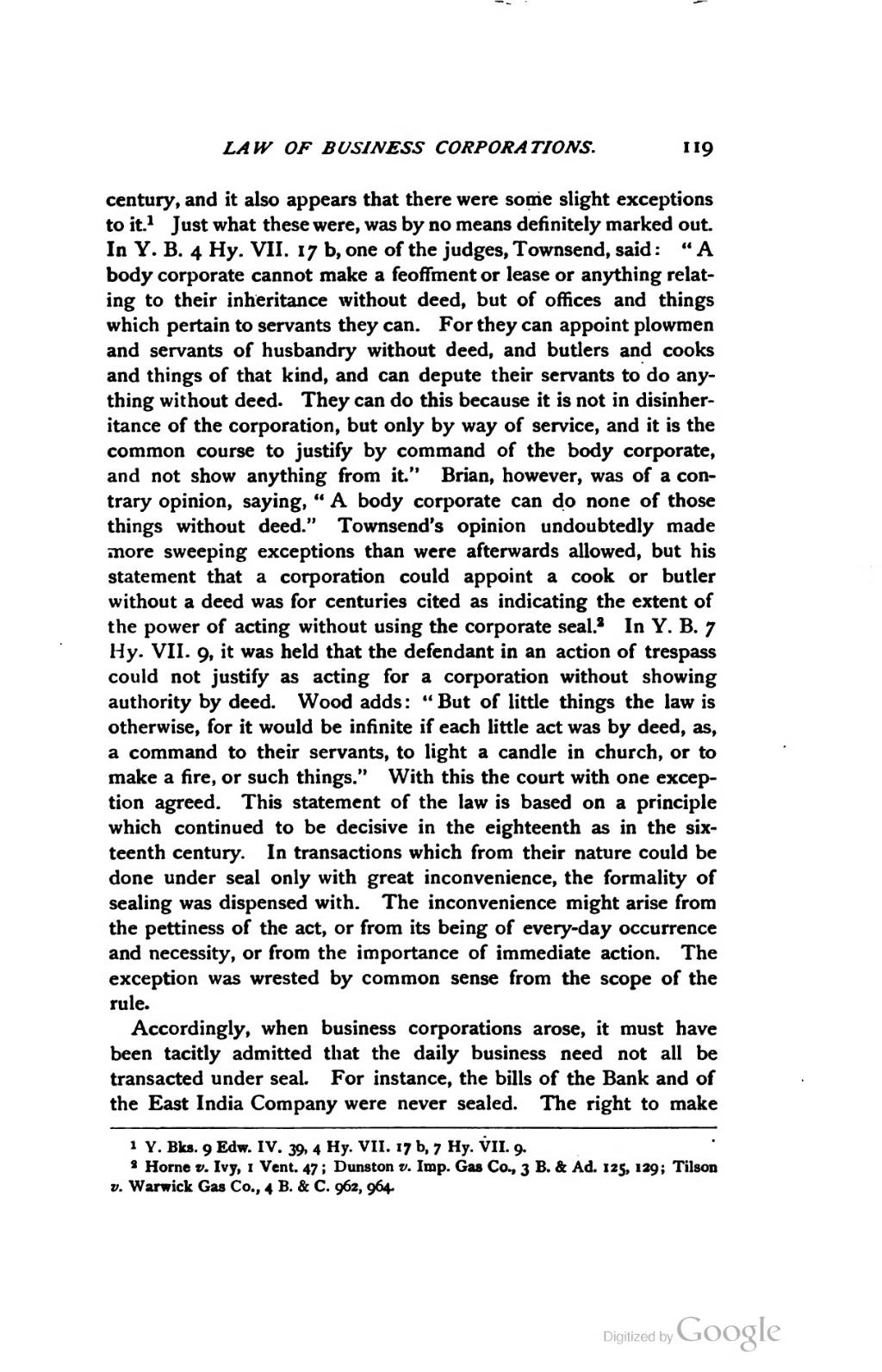century, and it also appears that there were some slight exceptions to it.[1] Just what these were, was by no means definitely marked out. In Y. B. 4 Hy. VII. 17 b, one of the judges, Townsend, said: "A body corporate cannot make a feoffment or lease or anything relating to their inheritance without deed, but of offices arid things which pertain to servants they can. For they can appoint plowmen and servants of husbandry without deed, and butlers and cooks and things of that kind, and can depute their servants to do anything without deed. They can do this because it is not in disinheritance of the corporation, but only by way of service, and it is the common course to justify by command of the body corporate, and not show anything from it." Brian, however, was of a contrary opinion, saying, "A body corporate can do none of those things without deed." Townsend's opinion undoubtedly made more sweeping exceptions than were afterwards allowed, but his statement that a corporation could appoint a cook or butler without a deed was for centuries cited as indicating the extent of the power of acting without using the corporate seal. [2]
Accordingly, when business corporations arose, it must have been tacitly admitted that the daily business need not all be transacted under seal. For instance, the bills of the Bank and of the East India Company were never sealed. The right to make
